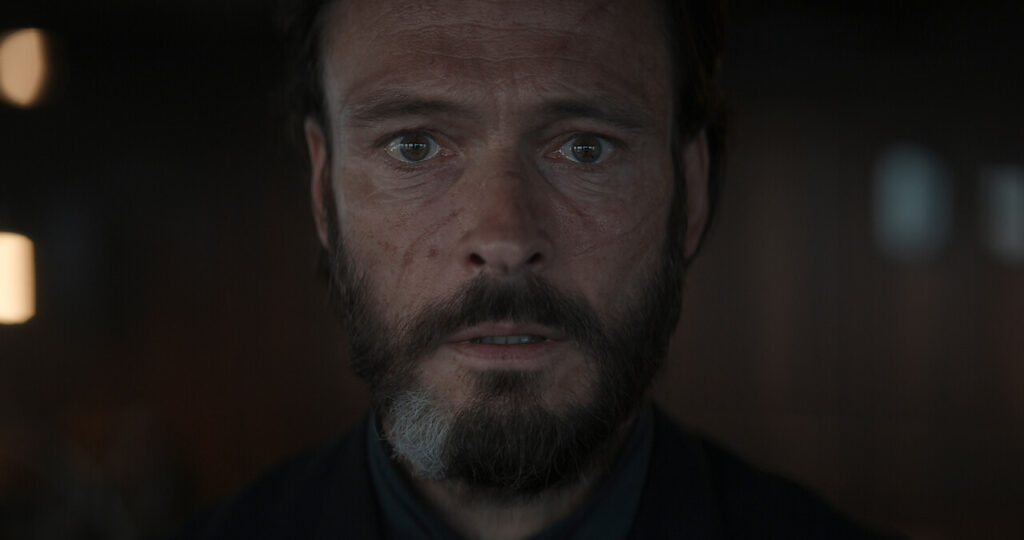Known for his captivating performances, German actor Andreas Pietschmann has received a lot of praise for his work on the Netflix series 1899. His career, marked by his versatility and dedication, demonstrates a notable progression from stage actor to renowned television and film star. This bio gives detailed information about Pietschmann’s life and career, highlighting his early years, challenges, and rise to prominence in the entertainment industry.
Early Life and Education
Born on March 22, 1971, in Germany, Andreas Pietschmann developed a passion for acting from a young age. Growing up in a supportive environment, Pietschmann pursued his interests with determination. He began his formal acting education at the Hochschule für Musik und Theater Hamburg (Hamburg University of Music and Theatre), where he honed his craft and prepared himself for a career in acting. His training at this prestigious institution laid a solid foundation for his future endeavors in both theater and screen.
Theater Beginnings
Pietschmann’s professional career took flight in the theater, where he initially made a name for himself. His early work included performances in various productions across Germany, showcasing his range and commitment. He became known for his ability to tackle diverse roles, from classical pieces to contemporary works. His stage presence and nuanced portrayals garnered him critical acclaim and a loyal following. Notable productions included roles in works by Shakespeare and modern playwrights, which highlighted his versatility and depth as an actor.
Struggles and Breakthroughs
Despite his early success on stage, Pietschmann faced significant challenges as he transitioned to screen acting. The journey was not always smooth, and he encountered periods of uncertainty and limited opportunities. It took time for him to gain recognition beyond the theater community. However, his perseverance paid off as he gradually secured roles in film and television.
His breakthrough came with his role in the German television series Der letzte Bulle (The Last Cop), where he played a recurring character. The series, which aired from 2010 to 2014, was a crime drama that received positive reviews, and Pietschmann’s performance was noted for its authenticity and emotional depth. This role marked a turning point in his career, opening doors to more prominent projects and establishing him as a rising star in German television.
Television and Film Success
Following his success in Der letzte Bulle, Pietschmann continued to build his resume with a variety of television and film roles. He appeared in the German TV series Tatort (Crime Scene), one of Germany’s most popular crime dramas, further solidifying his reputation as a versatile actor. His performances in Tatort were well-received, showcasing his ability to adapt to different genres and characters.
In addition to television, Pietschmann made notable contributions to film. He starred in The Silence (2019), a German thriller that garnered attention for its gripping narrative and strong performances. His portrayal in this film was praised for its intensity and emotional complexity, further proving his capability as a leading man in cinema.
International Recognition
Pietschmann’s international recognition grew significantly with his role in the Netflix series 1899. Created by the team behind Dark, one of Netflix’s most successful German series, 1899 is a historical drama set aboard a migrant ship traveling from Europe to America. Pietschmann’s role in the series was pivotal, and his performance was a key element in the show’s success.
1899 was highly anticipated and well-received, with critics praising its intricate storytelling and high production values. Pietschmann’s involvement in this project marked a significant achievement in his career, as it introduced him to a global audience and showcased his talent on an international platform. His portrayal of a complex character in 1899 demonstrated his ability to engage viewers with his depth and range.
Challenges and Personal Growth
Throughout his career, Pietschmann has faced various challenges, including the typical struggles of transitioning from theater to screen and navigating the competitive entertainment industry. Despite these obstacles, his dedication and resilience have been evident. He has consistently sought out roles that push his boundaries and allow him to grow as an actor.
Pietschmann’s journey reflects a commitment to his craft and an unwavering pursuit of excellence. His ability to adapt to different mediums and roles speaks to his versatility and passion for acting. Each project he undertakes is a testament to his growth and development as an artist.
Legacy and Future Prospects
As of now, Andreas Pietschmann continues to be a prominent figure in the entertainment industry, with his recent work in 1899 underscoring his significant impact. His career trajectory—from theater to film and international television—demonstrates his ability to evolve and succeed in diverse environments.
Looking ahead, Pietschmann’s future in the industry appears promising. With his strong track record and the success of his recent projects, he is likely to continue making a mark in both German and international entertainment. His dedication to his craft and his ability to connect with audiences ensure that he will remain a significant presence in the world of acting for years to come.
Andreas Pietschmann’s journey is a testament to the power of perseverance and passion in the entertainment industry. From his early theater days to his current success on the global stage, he has proven himself as a remarkable actor capable of delivering compelling performances across various genres. As he continues to take on new and challenging roles, his legacy as a talented and dedicated artist is firmly established.
